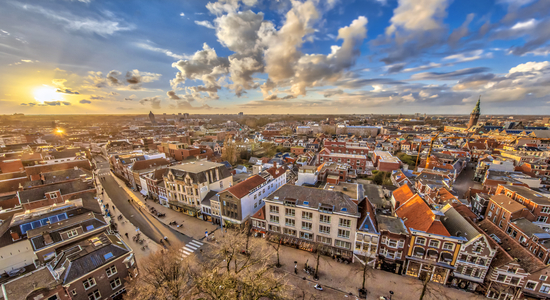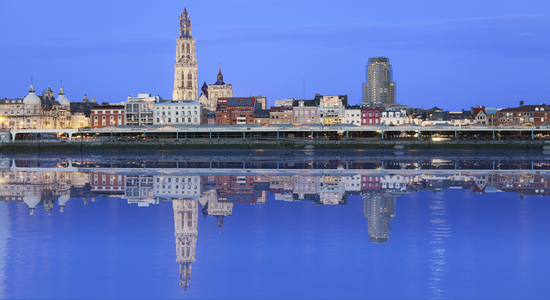MISSION: POSSIBLE - EU Funding & Finance for Benelux Smart Cities, part 2
Intertraffic presents the second of a three-part look at the main funding sources and programs for smart cities in the Benelux region
The EU’s Horizon Europe research and innovation program for 2021-2027 has 100 EU cities (including a few that are geographically in Europe but outside of the auspices of the European Union) that are participating in the Horizon Europe’s Mission for 100 climate-neutral and smart cities by 2030. The objective of the Cities Mission is to jumpstart research and innovation projects addressing clean mobility, energy efficiency and green urban planning.
A total of 11 smart cities that fall within the regional remit of Benelux are included:
Antwerp, Brussels Capital Region, La Louviere and Leuven in Belgium; the Luxembourgish city of
Differdange; and Amsterdam, Eindhoven & Helmond, Groningen, Rotterdam, The Hague and Utrecht in the Netherlands.

The 100 Cities Mission will receive a total of €360 million of Horizon Europe funding covering the period 2022-23, to start the innovation towards climate neutrality by 2030. The research and innovation actions will address clean mobility, energy efficiency and green urban planning, and offer the possibility to build joint initiatives and ramp up collaborations in synergies with other EU programmes. No specific figures are readily available but we may assume €-€5 million per city, perhaps, depending on the size of the city.
The objective of the Cities Mission is to jumpstart research and innovation projects addressing clean mobility, energy efficiency and green urban planning
NetZeroCities
The benefits for cities include technical advice and financial assistance from a dedicated Mission Platform run by NetZeroCities, additional funding and financing opportunities and the possibility to join large innovation actions and pilot projects. The Mission also provides networking opportunities and exchange of best practices between cities.
The Commission will invite the 100 selected cities to develop Climate City Contracts, which will include an overall plan for climate neutrality across a number of sectors including transport and energy, together with related investment plans. These Contracts will be co-created with local partners and citizens, with the help of a Mission Platform run by the project NetZeroCities. The Mission Platform will provide the necessary technical, regulatory and financial assistance to cities.
There will be support for research and innovation activities for developing, testing, demonstrating and scaling-up new and innovative solutions for climate neutrality in cities across sectors (e.g. energy efficiency, renewable energy, sustainable, safe and smart mobility, digitalisation etc.) through traditional calls for proposals but also through Horizon Europe new European partnerships. Contributions to the Cities Mission are also expected through Horizon Europe partnerships for:
- Towards zero-emission road transport (2ZERO) to accelerate the development of zero tailpipe emission transport in Europe for a climate-neutral and clean road transport system;
- Connected and Automated Driving (CCAM) to demonstrate inclusive, user-oriented and well-integrated mobility concepts, fostering cooperation between different transport modes, with increased safety, reduced congestion and a reduced carbon footprint.

Mission Critical
Dedicated calls for cities participating in the Mission will be organised for demonstration projects (e.g. on hydrogen-fuelled public transport to have in the Mission the “first hydrogen city” in the EU).

This Cities Mission is rooted in Research & Innovation (R&I), but activities supporting the Mission and its objectives under Horizon Europe will not be enough to cover the much larger funding and financing needs of cities in reaching climate neutrality – hence the need for the European Regional Development Fund (ERDF) and Recovery & Resilience Facility (RRF).
The new Digital Europe programme (DG Connect) will support the transition to sustainability for cities through digital transition
The new Digital Europe programme (DG Connect) will support the transition to sustainability for cities through digital transition, in particular by helping cities procure interoperable, local data platforms that enable the management of cross-sectoral data flows and the engagement of a variety of stakeholders. The programme will also support the creation and validation of a data space for climate-neutral and smart communities. Examples of the validation projects could address mobility, energy management, zero pollution and climate mitigation.
Thanks to Margaret A Pettit of CLEMATIS Consulting for her assistance in the compilation of this article.

.png?h=400&iar=0&w=1400)
.png?h=400&iar=0&w=1400)
